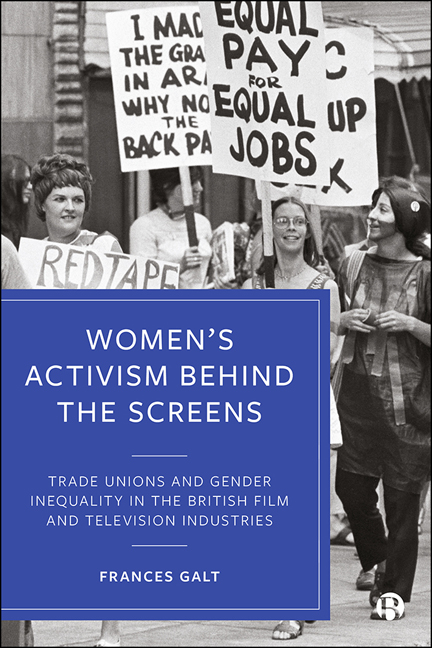 Women's Activism Behind the Screens
Women's Activism Behind the Screens Summary
Gender inequality in the film and television industries, particularly in Hollywood, currently dominates mainstream conversation. From the 2014 Sony email leak – which revealed that Jennifer Lawrence received a considerably lower rate of pay for her role in American Hustle (Director David O. Russell, 2013) than her male co-stars – to the 2017 allegations of sexual assault and harassment against Harvey Weinstein, women have illuminated and challenged wage inequality, gender discrimination and the endemic nature of sexual harassment in the film and television industries through campaigns such as Time's Up and the #MeToo movement. In the context of British broadcasting, a gender pay gap at the British Broadcasting Corporation (BBC) was disclosed when the Corporation published a list of its highest earners in July 2017, which revealed that its female stars made up only onethird of the BBC's 96 highest earners (Ruddick, 2017). A subsequent review of BBC staff found that, on average, men earned 9.3% more than women workers at the BBC (Ruddick and Grierson, 2017). Within a climate of mounting frustration around pay inequity, Carrie Gracie, BBC's China Editor, resigned in January 2018 because she could no longer ‘collude’ in wage discrimination (BBC News, 2018). In a landmark case, BBC presenter Samira Ahmed brought the first equal pay claim against the BBC to employment tribunal in October 2019.
Discussions about the role and relevance of trade union organization have also been gathering pace. In relation to the British labour movement, opinion pieces have proclaimed that women's trade union membership is vital to the continued relevance of trade unions, with titles declaring: ‘With women at the forefront, the unions are relevant again’ (Holmes, 2017) and ‘Working class women in the UK were the unsung heroes of 2016 – here are four of their major victories’ (Houghton, 2016). In a Guardian opinion piece, Rachel Holmes (2017) concluded: ‘Today equal pay and the gender pay gap are increasingly at the forefront of trade union campaigning’. In the Independent, GMB organizer Nadine Houghton (2016) evoked a history of women's union militancy as a call to arms for current women union members:
Women workers have a long and proud history of organising against injustice and now more than ever we need a strategy for winning, one that is based on unleashing our collective strength.
- Type
- Chapter
- Information
- Women's Activism Behind the ScreensTrade Unions and Gender Inequality in the British Film and Television Industries, pp. 1 - 26Publisher: Bristol University PressPrint publication year: 2020


